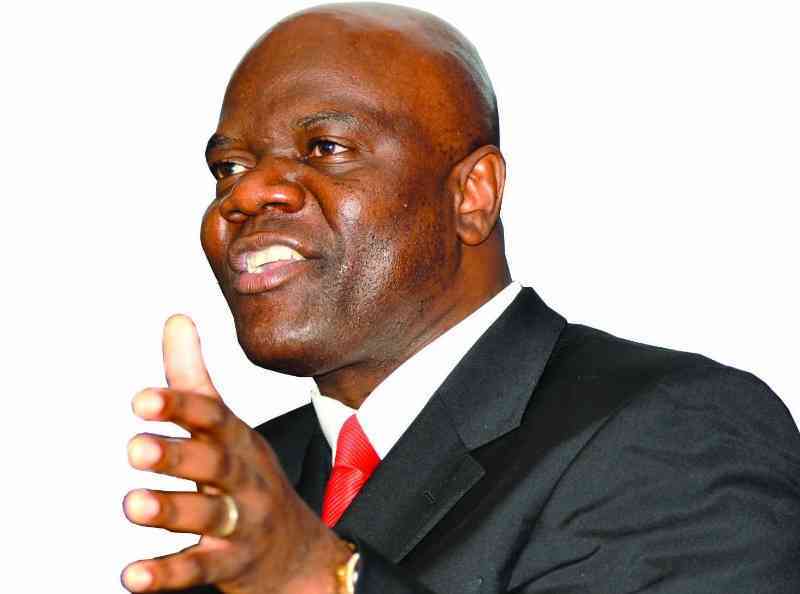
One of the country’s leading academics and artificial intelligence (AI) expert — Arthur Mutambara — this week called for the establishment of a fully-fledged AI ministry in Zimbabwe, as he launched a groundbreaking book covering AI’s fast-paced revolution.
Matambara said AI had emerged as an important factor in humanity that governments could no longer afford to relegate it to a department in other ministries.
Speaking at the launch of his new book in the capital, the robotics professor said the country’s lack of a strategic framework for AI adoption threatens its global competitiveness.
Mutambara’s book, Deploying Artificial Intelligence to Achieve the UN Sustainable Development Goals: Enablers, Drivers and Strategic Framework, serves as a direct call to action.
He said any national AI policy must be specifically tailored to Zimbabwe's unique socioeconomic conditions rather than adopting a generic model.
Mutambara outlined immediate risks, including stifled innovation, a widening digital divide, and missed opportunities in key sectors such as agriculture, healthcare, and finance. He emphasised that a clear policy would be fundamental to attracting investment and directing local research.
“We need a national AI vision, a policy document that outlines our goals and actions. Without it, we are spectators in a world driven by AI,” he said.
“Zimbabwe must develop a national AI strategy, a national AI vision, and a standalone AI policy document. We must build awareness and have a digital infrastructure. It must not only sit under the Ministry of ICT — it must be a ministry of its own, with its own Minister of AI. That is how serious this matter is.”
- Mavhunga puts DeMbare into Chibuku quarterfinals
- Bulls to charge into Zimbabwe gold stocks
- Ndiraya concerned as goals dry up
- Letters: How solar power is transforming African farms
Keep Reading
Mutambara, who served as deputy prime minister in the inclusive government between 2009 and 2013, added that AI can be harnessed to tackle widespread hunger and foster strong democratic institutions.
“There is no hunger in the world. In this day and age, poverty is a choice. Humanity is choosing poverty. If we work together, we must be able to end poverty,” Mutambara said.
“What interventions can we do to ensure that in 2030, we achieve these goals? How about transformative technologies? How can we use them to achieve the 17 sustainable development goals (SDGs)? We want peace, justice, and strong institutions. (We want) democracy, free and fair elections. Good governance, good country governance. That is SDG Number 16.”
Officially opening the AI Summit for Africa 2025 last week in Victoria Falls, Information Communication Technology minister Tatenda Mavetera said Zimbabwe is set to launch a national AI policy, which will help in creating a safe environment for its use and promotion.
The summit, which ran under the theme AI-Powered Transformation: Unlocking New Frontiers for Sustainable Socio-Economic Growth was organised by the Zimbabwe Independent in partnership with the Artificial Intelligence Institute Africa.
“The second draft of Zimbabwe’s national AI strategy has been concluded. While it could not be launched at this summit due to ongoing consultations with stakeholders, it is anticipated to be launched by October 1, 2025,” she said.
“The strategy aims to build an Africa where AI serves humanity, ensuring every village is connected, every child is educated, and every youth has opportunities.”
Addressing delegates attending the book launch, Westprop Holdings Limited chief executive officer Ken Sharpe noted that AI could be utilised to address some of Africa’s pressing challenges, such as poverty.
Sharpe said: “So I asked ChatGPT5, what is the most effective way to move as many people as possible out of poverty in Zimbabwe with a US$100 000 investment? It may seem like a small amount. And in 44 seconds, it gave me a practical, high level summary of how it should be done. It said, create village savings and loan associations.
“And in that, it said from the US$100 000, 1 000 people will be removed from poverty. So, I thought to myself, well, if I invest US$1 million, I will take 10 000 people out of poverty, and I will do that. It is my commitment tonight.”
United Nations Development Programme resident representative for Zimbabwe, Ayodele Odusola underscored the critical role of AI in reshaping development across Africa.
“Our latest survey shows that two thirds of young people believe AI can solve problems in education, health, agriculture, and climate action,” he said.
According to the 2024 United Nations Sustainable Development Goals Progress Report, over 40% of Zimbabwe’s population still lives below the international poverty line, while one in three children lacks access to quality education.
Unemployment among youth remains above 55% and over 60% of healthcare facilities face equipment or staffing shortages. The report also notes that Zimbabwe has only met progress targets on three out of 17 SDGs, with significant gaps in innovation, clean energy and industrial growth.







